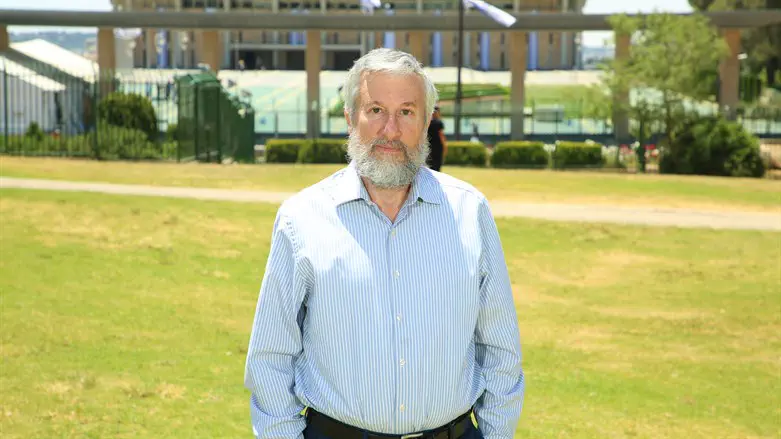
The chairman of the right-wing think tank Kohelet Policy Forum, Moshe Kopel, was interviewed by the Wall Street Journal and commented on the judicial reform in Israel.
“I learned how the system works, how you get stuff done in the Knesset,” Mr. Koppel says about working with elected officials in the Knesset. “It turns out it’s not that hard. The important thing is to control the text and give credit to everybody but yourself. And on that basis, I started dabbling in this stuff. We just do research and give advice.”
“If you want to do something major, you need to do it in a very thought-out and deliberate manner,” Mr. Koppel says. “The government did not prepare properly. It was rushed.” By the time leaders reached out to compromise, the opposition had hardened. “Those who are now in the coalition are going to need to learn how to govern responsibly — and they haven’t,” he said.
According to him, former Supreme Court Chief Justice Aharon Barak, who joined the Supreme Court in 1978, led a “judicial revolution,” in which the court freed itself from the normal restraints that protect the political sphere. “The justices have managed to keep reproducing using their conspicuous power on the committee that selects new justices. What Barak created out of whole cloth was a degree of judicial power undreamed of even by our most aggressive Supreme Court justices,” he noted.
He criticized the announcement of the Attorney General, according to which Prime Minister Benjamin Netanyahu should avoid any involvement in initiatives to change the judicial system. “Bibi is probably the most moderate guy in his coalition,” he noted, using the Prime Minister's popular nickname. According to him, “There’s a lot of people in this country who are absolutely certain that they should be prime minister. But Bibi has been around forever, and he has kind of clogged the system. That’s why he gets so much hostility. Most of his opponents are his former underlings who wanted to move up.”
“My favorite vision of the return of the Jews to Israel is in the book of Zechariah,” Koppel said. “There’s nothing grandiose there. He just says, ‘In the end of days, old Jewish men and women will sit again in the streets of Jerusalem, and little boys and girls will play in the streets.’ And after 2,000 years, my parents are those old people, and my kids, my grandchildren, are those kids. Everything else is a bonus. I can’t believe my good fortune that it happened to me. So, do I think we’ll be OK? We’ll be fine. We’re just having a little bit of a fit here. We’ll get past it.”
